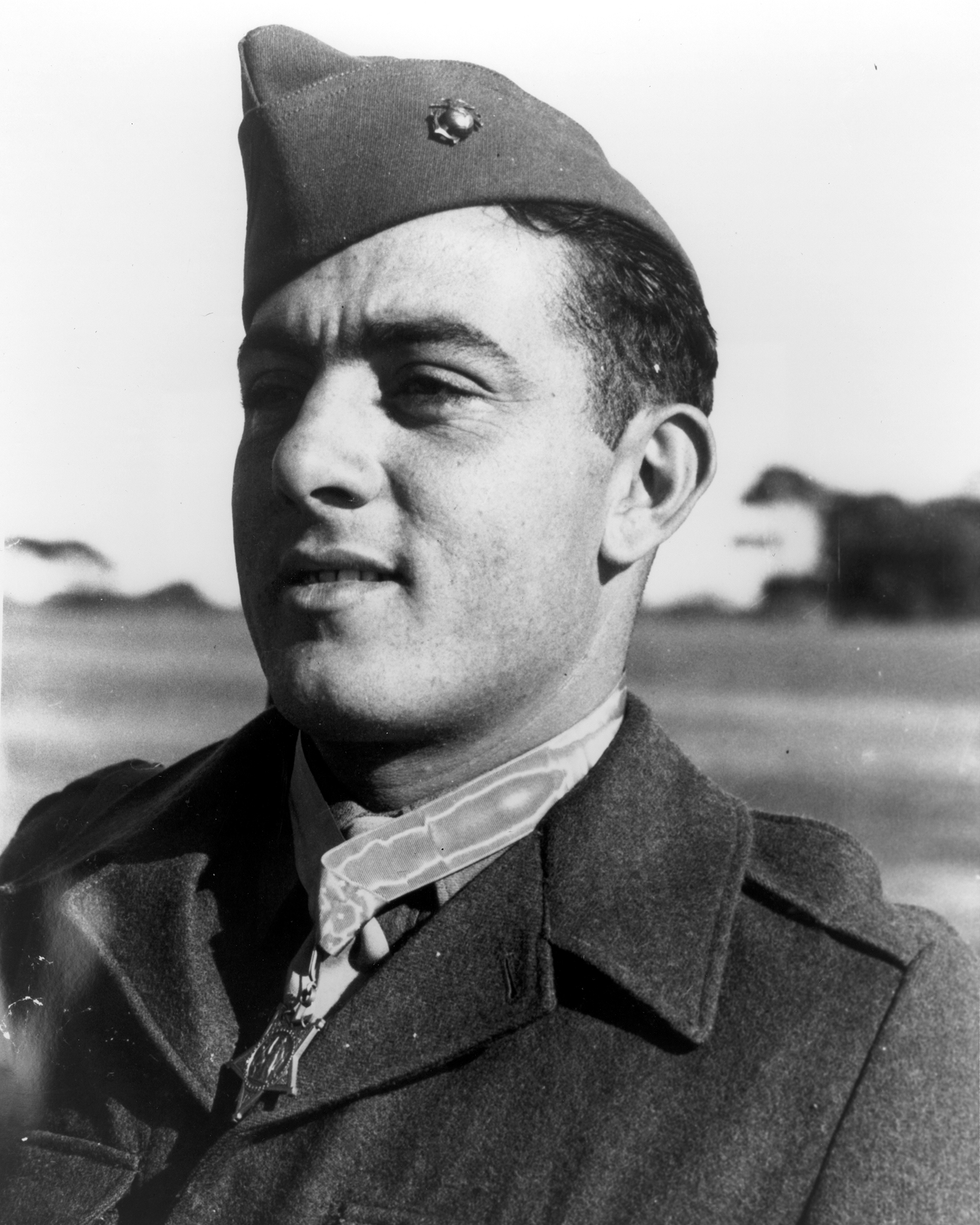
GUNNERY SERGEANT
JOHN BASILONE, USMC (DECEASED)
Medal of Honor Citation
Gunnery Sergeant John Basilone, of Raritan, New Jersey, was awarded the Medal of Honor in recognition of his outstanding heroism at Guadalcanal. Later, during the Iwo Jima campaign, he was killed in action on D-Day, 19 February 1945.
At Guadalcanal, where he was serving with the 1st Battalion, 7th Marines, 1st Marine Division, he used a machine gun and a pistol to kill 38 of the enemy from his emplacement and earn the nation's highest military decoration.
At Iwo Jima, GySgt Basilone again distinguished himself, single-handedly destroying a Japanese blockhouse while braving smashing bombardment of enemy heavy caliber fire. For his exploit he was posthumously awarded the Navy Cross. While at Iwo Jima he was attached to the 1st Battalion, 27th Marines, 5th Marine Division.
Son of an Italian-born father, he spent nearly six years in the U.S. Armed Forces, and was a sergeant at the time he was awarded the Medal of Honor. The citation accompanying his Medal of Honor was signed by President Franklin D. Roosevelt.
The story about the 38 Japanese bodies comes from PFC Nash W. Phillips, of Fayetteville, North Carolina, who was in the same unit with Sgt Basilone on Guadalcanal.
"Basilone had a machine gun on the go for three days and nights without sleep, rest or food," PFC Phillips recounted. "He was in a good emplacement, and causing the Japs lots of trouble, not only firing his machine gun but also using his pistol."
Gunnery Sergeant Basilone's buddies on Guadalcanal called him "Manila John" because he had served with the Army in the Philippines before enlisting in the Marine Corps.
He was one of a family of ten children. Born in Buffalo, New York, on 4 November 1916, he went to St. Bernard Parochial School in Raritan and enlisted in the Army at the age of 18. After completing his three-year enlistment he came home and went to work as a truck driver in Reisterstown, Maryland.
In July 1940 he enlisted in the Marine Corps in Baltimore, Maryland. Before going to the Solomon Islands he saw service at Guantanamo Bay, Cuba, in addition to training at the Marine Barracks, Quantico, Virginia; Parris Island, South Carolina; and New River (Later Camp Lejeune), North Carolina.
Following World War II, GySgt Basilone's remains were reinterred in the Arlington National Cemetery, and in July 1949, the USS Basilone, a destroyer, was commissioned in his honor at the Boston Naval Shipyard.
World War II 1941-1945 Medal of Honor